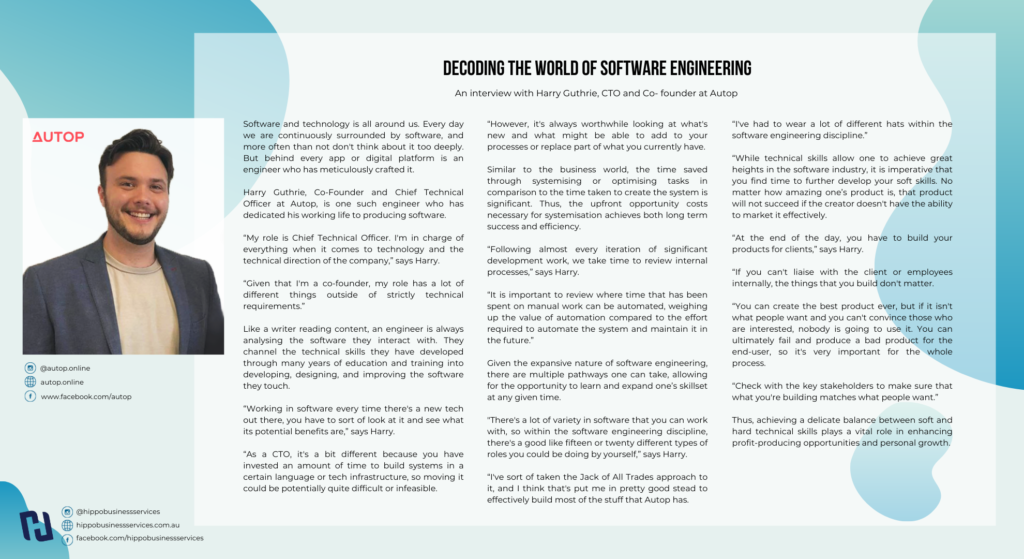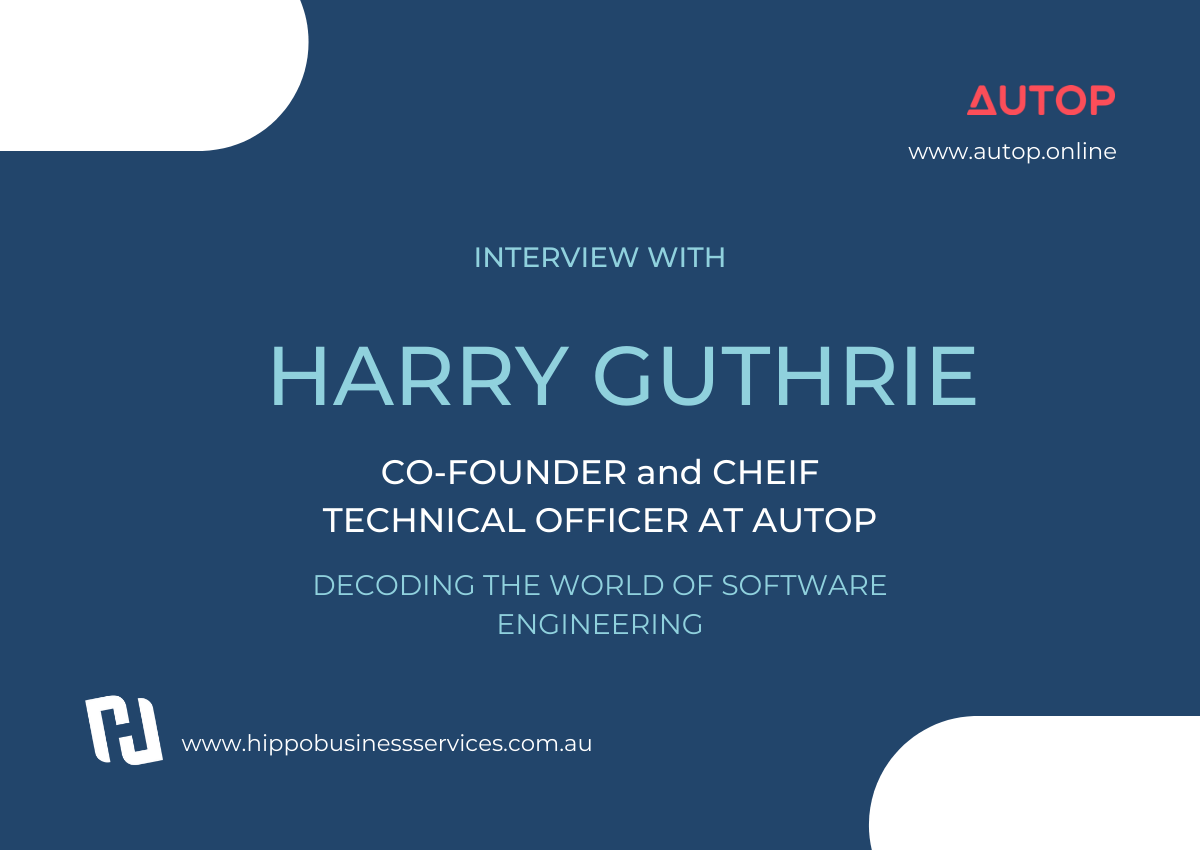Software and technology is all around us. Every day we are continuously surrounded by software, and more often than not don’t think about it too deeply. But behind every app or digital platform is an engineer who has meticulously crafted it.
Harry Guthrie, Co-Founder and Chief Technical Officer at Autop, is one such engineer who has dedicated his working life to producing software.
“My role is Chief Technical Officer. I’m in charge of everything when it comes to technology and the technical direction of the company,” says Harry.
“Given that I’m a co-founder, my role has a lot of different things outside of strictly technical requirements.”
Like a writer reading content, an engineer is always analysing the software they interact with. They channel the technical skills they have developed through many years of education and training into developing, designing, and improving the software they touch.
“Working in software every time there’s a new tech out there, you have to sort of look at it and see what its potential benefits are,” says Harry.
“As a CTO, it’s a bit different because you have invested an amount of time to build systems in a certain language or tech infrastructure, so moving it could be potentially quite difficult or infeasible.
“However, it’s always worthwhile looking at what’s new and what might be able to add to your processes or replace part of what you currently have.
“I’ve done a lot of workflow development, so if we have a workflow that’s very manual and requires a lot of work, we will look into technical options to replace that.”
Similar to the business world, the time saved through systemising or optimising tasks in comparison to the time taken to create the system is significant. Thus, the upfront opportunity costs necessary for systemisation achieves both long term success and efficiency.
“Following almost every iteration of significant development work, we take time to review internal processes,” says Harry.
“It is important to review where time that has been spent on manual work can be automated, weighing up the value of automation compared to the effort required to automate the system and maintain it in the future.”
Given the expansive nature of software engineering, there are multiple pathways one can take, allowing for the opportunity to learn and expand one’s skillset at any given time.
“There’s a lot of variety in software that you can work with, so within the software engineering discipline, there’s a good like fifteen or twenty different types of roles you could be doing by yourself,” says Harry.
“I’ve sort of taken the Jack of All Trades approach to it, and I think that’s put me in pretty good stead to effectively build most of the stuff that Autop has.
“I’ve had to wear a lot of different hats within the software engineering discipline.”
While technical skills allow one to achieve great heights in the software industry, it is imperative that you find time to further develop your soft skills. No matter how amazing one’s product is, that product will not succeed if the creator doesn’t have the ability to market it effectively.
“At the end of the day, you have to build your products for clients,” says Harry.
“If you can’t liaise with the client or employees internally, the things that you build don’t matter.
“You can create the best product ever, but if it isn’t what people want and you can’t convince those who are interested, nobody is going to use it. You can ultimately fail and produce a bad product for the end-user, so it’s very important for the whole process.
“Check with the key stakeholders to make sure that what you’re building matches what people want.”
Thus, achieving a delicate balance between soft and hard technical skills plays a vital role in enhancing profit-producing opportunities and personal growth.









